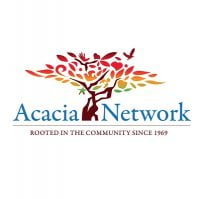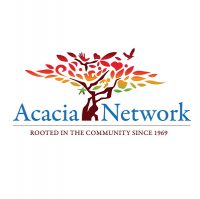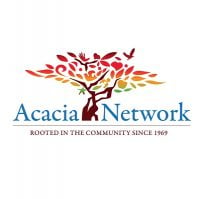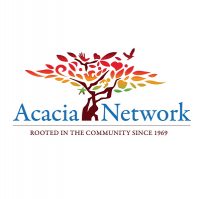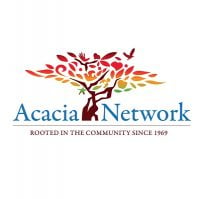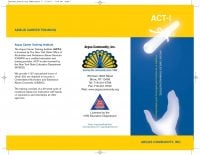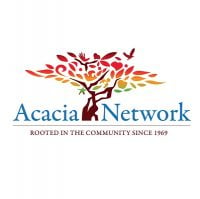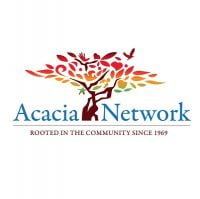South Bronx Mental Health Council - Alcoholism Outpatient
Drug Rehab Center in Bronx, New York
The South Bronx Mental Health Council - Alcoholism Outpatient is an addiction treatment facility that provides individuals suffering from alcoholism, opioid addiction, dual diagnosis and other substance-related issues with comprehensive and tailored services in an outpatient setting facilitated by professionals, educational presentations and support groups for successful recovery.
Multiple patients have reported South Bronx Mental Health Council - Alcoholism Outpatient as permanently closed.
Research other rehabs in Bronx, New York, or get help finding an open facility.
About South Bronx Mental Health Council - Alcoholism Outpatient in New York
South Bronx Mental Health Council - Alcoholism Outpatient is a treatment facility located in the Bronx, New York, that specializes in helping individuals overcome alcohol and drug addiction. They offer various levels of care, including outpatient treatment, to cater to different needs and schedules. This facility is dedicated to providing comprehensive support for those who are seeking to get sober and recover from substance abuse.
At South Bronx Mental Health Council - Alcoholism Outpatient, they provide a range of services and treatment methods for individuals struggling with alcoholism and drug addiction. Their programs are specifically tailored to address a variety of needs such as opioid addiction, dual diagnosis (a combination of mental health issues with substance abuse), and general drug addiction treatment. Through their holistic approach, they utilize evidence-based therapies like individual counseling sessions, group therapy sessions, psychoeducation programs as well as medication-assisted treatments when necessary. The staff at this facility understands the complexity of these issues and works closely with patients to develop personalized treatment plans that aim towards long-term recovery success.
Genders
Ages
Modality
Additional
Conditions and Issues Treated
Opioid addiction treatment should be done in a medically supervised drug rehab. While taking opioids, users will typically use other substances to enhance the effects of opioids or to reduce the adverse effects of opioid use. Opioid addiction treatment will include detoxification and drug rehab counseling to help both the user and their loved ones learn how to live a successful sober lifestyle.
Treatments such as methadone, buprenorphine, and naltrexone are three medications that can help treat opioid addiction. These drugs work on the brain’s pleasure center and reduce cravings and the effects of illicit opioids such as heroin. These drugs can be either given orally or by injection. Individual drug rehab counseling sessions can be helpful to discuss any questions or concerns with the drug treatment program. This counseling will also help the user set goals for when they finish drug rehab.
Opioid addiction recovery is a long process. Many of the changes to the brain caused by opioid use cannot be undone, but with time and the proper treatment, a person can return to normal function. After detox, treatment will include drug rehab counseling and entering a halfway house or sober living community. Aftercare is critical to long-term recovery, as it helps the user avoid relapsing and entering back into drug rehab.
Levels of Care Offered
This center offers a variety of custom treatment tailored to individual recovery. Currently available are Drug Rehab, Outpatient, with additional therapies available as listed below.
“Outpatient treatment is ideal for those who have a lower intensity addiction. It’s also suitable for those with a supportive environment and those on a tight budget.
Outpatient treatment can be considered the lowest intensity level of addiction treatment. It is ideal for early phase addiction or lower intensity addictions. It may involve weekly sessions instead of daily. Peer group support, 12-step programs, and individual counseling may still be used and anti-addiction medication.
Therapies & Programs
No single treatment works for all addicts; therefore, the goal of treatment and therapy should be to find what works best for each individual. Some people requiring addiction treatment may only need a few weeks of inpatient care. Others will require long-term residential care. Tolerance and withdrawal levels vary from person to person and thus affect the intensity of the treatment needed.
If an individualized approach to treatment and therapy is not offered, addicts may fail to reap benefits from their efforts. Professionals must customize plans according to their patient’s needs, limitations, and strengths. The goal of all forms of addiction treatment should be for addicts to find healthy ways to cope with their addiction and its underlying causes.
Couples therapy for drug addiction is a unique form of therapy that allows family members to work through the emotional issues of their loved one’s addiction together. Family members can support each other while learning how to cope with the addiction and encourage healthy changes.
Accordingly, couples therapy for drug addiction is designed for an addict and their significant other or spouse. The two will work with a therapist to learn how the addiction affects themselves and the relationship and how to break the negative patterns of behavior that may have developed.
Drug addiction can destroy a person’s life, as well as their family and friends. The loss of one’s ability to choose how to live and behave often leads the addict into depression, anger, guilt, and many emotional problems.
The therapies usually include siblings, children, and parents who are involved in their daily lives. These sessions are vital because they address past issues that may have hampered an addict’s or alcoholic’s recovery and provide support at a crucial time!
One of the most critical aspects of family therapy is helping addicts’ loved ones see their situation in a new light. It’s also one of the most challenging things a family can do when a loved one struggles with addiction or alcoholism.
Group therapy is held in a safe, controlled setting where patients can feel comfortable sharing their struggles and gaining perspective through shared conversations. It takes place in a group rather than one on one to prevent feelings of isolation or being unique in their situation while creating an environment for addicts at South Bronx Mental Health Council - Alcoholism Outpatient to develop fellowship, accountability, and support. Group therapy is an important tool in recovery that prevents cravings that prompt a return to active addiction.
Additional Details
Specifics, location, and helpful extra information.
Bronx, New York 10474 Phone Number(718) 378-6500 Meta DetailsUpdated November 25, 2023
Staff Verified
South Bronx Mental Health Council - Alcoholism Outpatient Patient Reviews
There are no reviews yet. Be the first one to write one.
Bronx, New York Addiction Information
More than 2 million New Yorkers are currently suffering from some type of substance abuse and many of those are minors. Alcohol abuse, in particular, is prevalent among those underage. As a result of the high prices and regulation of prescription drugs, many New Yorkers turn to heroin instead. This has led to a serious heroin epidemic in the state.
In the Bronx, drug overdoses are a major problem – in 2016, there were nearly 76 lives lost to drug-related deaths. Common drugs commonly abused in the state include cocaine, methamphetamine, and prescription painkillers like oxycodone and Vicodin. There are some 12-step programs, holistic treatment options, and other types of therapy available depending on your specific needs and preferences.
Treatment in Nearby Cities
- Ithaca, NY (175.8 mi.)
- Oneida, NY (181.6 mi.)
- Hornell, NY (221.4 mi.)
- Monroe, NY (37.0 mi.)
- Ridgewood, NY (7.8 mi.)
Centers near South Bronx Mental Health Council - Alcoholism Outpatient
The facility name, logo and brand are the property and registered trademarks of South Bronx Mental Health Council - Alcoholism Outpatient, and are being used for identification and informational purposes only. Use of these names, logos and brands shall not imply endorsement. RehabNow.org is not affiliated with or sponsored by South Bronx Mental Health Council - Alcoholism Outpatient.

